
People
The Art of Peace project brings together people with expertise in art, social science and peacebuilding disciplines with a vast experience working in the context of conflict zones.
Find out more about us:
Miguel Barreto De Sousa Henriques
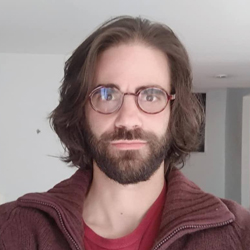
Miguel Barreto Henriques holds a PhD in International Relations and Conflict Resolution from the University of Coimbra, in Portugal. His dissertation focused on the ‘Peace Laboratories’ in Colombia and it was awarded in 2013 by the Latin American House and the Santander Bank in Portugal.
For the past seven years he has been a tenured lecturer at the Department of Political Science and International Relations of the Universidad de Bogotá Jorge Tadeo Lozano. He has taught undergraduate and postgraduate courses on International Relations Theory, Conflict Analysis and Peacebuilding, among others.
Since 2014, he has directed the Observatory for Peacebuilding in the University of Bogota Jorge Tadeo Lozano. Within this institution, he has lead several research projects, as well as consultancies to the High Commissioner for Peace Office in Colombia and to the European Union Delegation in Colombia.
He has published extensively on peace studies and conflict analysis with a specific focus on Colombia and Latin America. His current research interests are reconciliation, historical memory, peace processes and arts and peacebuilding.
Teresa Ó Brádaigh Bean
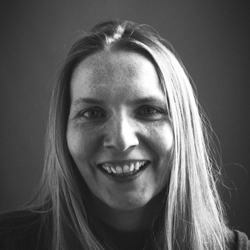 Teresa has worked as the head of research and education at 10 years at In Place of War, a global charity that supports artists and cultural organizations in sites of conflict. During her time at In Place of War she has undertaken research and education projects. These have included projects that explored the role of creative and social enterprise in community development, the role of creative and digital tools in community peacebuilding and the development of a University of Manchester certified education programme for artists and cultural practitioners living in sites of conflict. Her work has been recognised by the University of Manchester and she was awarded the Making a Difference Award for widening participation in 2017 and was made an Honorary Research Fellow in 2018.
Teresa has worked as the head of research and education at 10 years at In Place of War, a global charity that supports artists and cultural organizations in sites of conflict. During her time at In Place of War she has undertaken research and education projects. These have included projects that explored the role of creative and social enterprise in community development, the role of creative and digital tools in community peacebuilding and the development of a University of Manchester certified education programme for artists and cultural practitioners living in sites of conflict. Her work has been recognised by the University of Manchester and she was awarded the Making a Difference Award for widening participation in 2017 and was made an Honorary Research Fellow in 2018.
Building on her postgraduate studies and field work with In Place of War, her research interests include, art based social movements, in particular hip hop in Colombia, the role of community arts based education in sites of conflict and arts based peacebuilding. She has written journal articles and presented papers on these themes. She is the co-author of a book that charts the role of arts in communities across the Global South ‘The Art of making something from nothing’ due to published by University of Manchester Press in 2020.
Lydia Cole
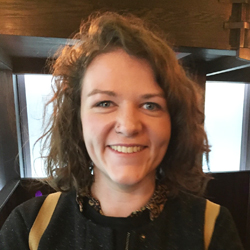 Dr Lydia Cole is a Postdoctoral Research Associate on ‘The art of peace: Interrogating community devised arts-based peacebuilding’, working particularly with project partners in Bosnia and Herzegovina (BiH). She has previously worked as Associate Lecturer at University of St Andrews and completed her doctoral research at Aberystwyth University in 2018. Her research is interdisciplinary, drawing on feminist international relations theory, critical peace and conflict studies, and visual, creative and participatory research methods.
Dr Lydia Cole is a Postdoctoral Research Associate on ‘The art of peace: Interrogating community devised arts-based peacebuilding’, working particularly with project partners in Bosnia and Herzegovina (BiH). She has previously worked as Associate Lecturer at University of St Andrews and completed her doctoral research at Aberystwyth University in 2018. Her research is interdisciplinary, drawing on feminist international relations theory, critical peace and conflict studies, and visual, creative and participatory research methods.
Previously, her research has critically examined post-conflict frames of justice and recognition, the politics of in/visibility and sexual and gender-based violence, and the visual and curatorial politics of conflict textiles. She has curated textile exhibitions including Stitched Voices (Aberystwyth Arts Centre) and Threads, War and Conflict (The Byre Theatre, St Andrews) and has published in journals including International Feminist Journal of Politics and Critical Military Studies (forthcoming).
Lydia is founder and co-editor of Openings, a creative intervention section of Contemporary Voices in International Relations (CVIR). Her current research explores the potential of arts-based methods in responding to intersectional injustice, for transformative political action, and in processes of peace formation.
Ruth Daniel
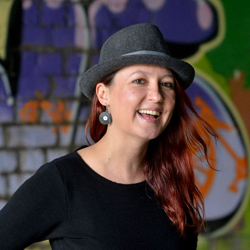
CEO of In Place of War, Ruth has led a diverse range of arts and peace-building initiatives across the globe. She has developed and implemented over a hundred cultural programmes in sites of conflict and disadvantage such as war zones, post war zones and areas of economic deprivation. She prepared numerous successful funding applications, recently receiving £1million AHRC research grant for a 3 year programme that will explore how grassroots organisations can create social change using art.
From guitarist at the age of eight to record label owner, band manager, fundraiser, international cultural activist, entrepreneur, educator, influential speaker (TEDx) to prestigious award winner within a national arena (Social Enterprise of the Year & Manchester Woman of Culture to name a couple), Ruth’s passion to empower people to build their own positive futures through creative entrepreneur programmes, the development of cultural spaces and artistic collaboration shows no boundaries in terms of fields of work. Ruth is also Honorary Research Fellow at The University of Manchester.
Stefanie Kappler
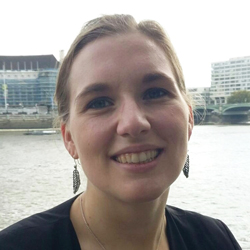 Stefanie Kappler is Associate Professor in Conflict Resolution and Peacebuilding at Durham University. Her main research interests include spatial approaches to peace, memory politics and the role of the arts in peace formation processes. Inspired by post-colonial and visual approaches to scholarship, she is interested in the ways in which marginalised voices can be brought to the forefront of research.
Stefanie Kappler is Associate Professor in Conflict Resolution and Peacebuilding at Durham University. Her main research interests include spatial approaches to peace, memory politics and the role of the arts in peace formation processes. Inspired by post-colonial and visual approaches to scholarship, she is interested in the ways in which marginalised voices can be brought to the forefront of research.
Stefanie has conducted fieldwork in Bosnia-Herzegovina, South Africa, Cyprus, Northern Ireland, Kosovo and Brussels. Her recent publications include Peacebuilding and Spatial Transformation: Peace, Space and Place, Routledge (2017), co-authored with Annika Björkdahl, as well as journal articles in Political Geography, Memory Studies, Cooperation and Conflict, Review of International Studies and Millennium – Journal of International Studies, amongst others.
Apart from her role in this project, where she leads the Durham team and is primarily involved in the Bosnian case study, Stefanie is working on externally-funded projects to investigate the connection between memory politics, cultural heritage and peacebuilding.
Find out more on the Peace, Memory and Cultural Heritage website.
Oliver Richmond
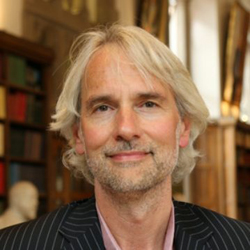
Oliver Richmond’s primary area of expertise is in peace and conflict theory, and in particular its inter-linkages with IR theory. He is currently working on a book entitled Peace in the 21st Century (OUP forthcoming 2018). This study examines the evolution of the different strategies for maintaining international order in contemporary history and engages with new questions about peace and war raised in the digital era.
His previous work was on peace formation and its relation to state formation, statebuilding, and peacebuilding (Failed Statebuilding and Peace Formation, Yale University Press 2014 and Peace Formation and Political Order, Oxford University Press, 2016). This area of interest grew out of his work on local forms of critical agency and resistance, and their role in constructing hybrid or post-liberal forms of peace and states (see A Post-Liberal Peace, Routledge, 2011), as well as earlier conflict resolution and conflict management debates in IR, including international mediation, peacekeeping, peacebuilding, and state formation debates.
Oliver also published a Very Short Introduction to Peace (Oxford University Press, 2014), which offers an overview of the development of related concepts, theory and practices.
Azadeh Sobout
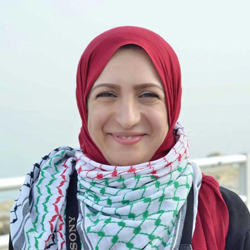
Azadeh’s research has centred on the complex encounters between critical urban studies, radical geography and transitional justice processes, engaging with post-war geographies, geographies of (in)justice and displacement, and decolonial epistemologies. During the past six years she has created visual and ethnographic accounts into the exploration of war memoryscapes and narratives of displacement, bringing a new paradigmatic shift to the study of post-war reconstruction and transitional justice.
As a post-doctoral researcher with The University of Manchester, Azadeh is currently leading a research project on the intersection of arts and peace building in Lebanon. Working with artists on a research project to explore the art that has emerged since the beginning of the Syrian war, she is exploring how different affected communities reflect and present their histories and identities through varied artistic or literary mediums and how different forms of arts can create avenues for peace activism. In doing so, she has been practicing, conceiving and researching an idea of peace that reflects on the complexity of working through solidarities, responsibility, and ethics while involved in politically engaged scholarship.
Dr Birte Vogel
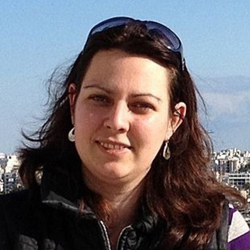
Birte is a Lecturer Peace and Conflict Studies at the Humanitarian and Conflict Response Institute, University of Manchester. She is Assistant Editor of the Taylor and Francis journal Peacebuilding and the Co-Investigator on the AHRC funded project ‘The art of peace: Interrogating community devised arts-based peacebuilding’.
Her academic interest is mainly on the interface between international and local approaches to peace. In addition to the arts, Birte mainly works on projects looking at the intersection of (everyday) economics and peace. Her recent co-edited book ‘Economies of Peace: Economy Formation Processes in Conflict-Affected Societies’ was published with Routledge (2019). She was previously involved in a EU FP7 funded project ‘Cultures of Governance and Conflict Resolution in India and Europe’ (2011-213).
